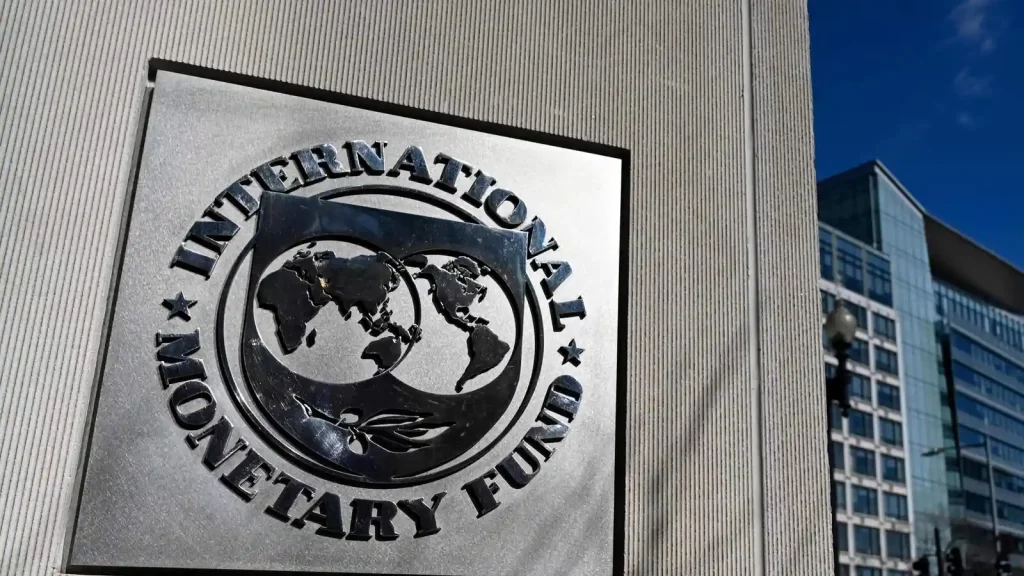IMF wants to increase the tax burden on the non-salaried and salaried class.
The International Monetary Fund (IMF) has put forward a significant proposal to the Federal Board of Revenue (FBR) aimed at restructuring Pakistan’s tax system, potentially doubling the tax burden for both salaried and non-salaried individuals.
If implemented, this move is expected to affect middle and upper-middle-income groups.
The IMF’s recommendations include eliminating the differentiation between salaried and non-salaried classes, streamlining the current seven-tier tax structure down to four slabs, and abolishing tax exemptions on private employers’ contributions to pension funds.
Preliminary estimates suggest that adopting the IMF’s proposals regarding Personal Income Tax (PIT) could result in an additional revenue boost of 0.5% of GDP, translating to around Rs500 billion annually.
Data from the current fiscal year indicates that the FBR has already collected Rs215 billion from the salaried class in the initial eight months (July to February) period. Projections foresee this figure reaching approximately Rs300 billion by year-end.
The IMF’s plan, if enacted, could potentially add an extra Rs500 billion to the revenue pool, encompassing both salaried and non-salaried groups.
Insider sources within the FBR have affirmed the potential for revenue augmentation through the removal of exemptions and preferential tax treatments.
The IMF further advocates for simplifying PIT rates and consolidating tax slabs into a single progressive structure.
Currently, there are seven tax slabs. Where the taxable income does not exceed Rs400,000 for the salaried class, there is a zero tax rate. Where the taxable income exceeds Rs400,000 but does not exceed Rs1,200,000, there is a tax rate of 5% of the amount exceeding Rs400,000. Where the taxable income exceeds Rs1,200,000 but does not exceed Rs2,400,000, there is Rs40,000 + 10% of the amount exceeding Rs1,200,000.
Moreover, where the taxable income exceeds Rs2,400,000 but does not exceed Rs3,600,000, there is a tax rate of Rs160,000 + 15% of the amount exceeding Rs2,400,000. Where the taxable income exceeds Rs3,600,000 but does not exceed Rs4,800,000, there is a tax rate of Rs340,000 + 20% of the amount exceeding Rs3,600,000. Where the taxable income exceeds Rs4,800,000 but does not exceed Rs6,000,000, there is a tax rate of Rs580,000 + 25% of the amount exceeding Rs4,800,000. In the last and seventh slab, where the taxable income exceeds Rs6,000,000, there is a tax rate of Rs880,000+ 30% of the amount exceeding Rs6,000,000.
Presently, Pakistan’s tax system features seven distinct slabs, each with varying rates corresponding to different income thresholds.
The IMF advises lowering the income threshold for higher-rate slabs and eliminating preferential treatment for certain sectors to enhance equity and efficiency.
In terms of pensions, the IMF proposes taxing either pension contributions or benefits, offering alternatives such as eliminating deductions for voluntary payments to workers’ participation funds or subjecting pensions to taxation.
Former FBR Member Tax Policy Dr. Mohammad Iqbal has highlighted the unique taxation approach in Pakistan, where salary income is taxed on a gross basis without allowing for deductions, unlike many other countries.
“All other sources of income, such as property or business income, are reduced by various deductions and expenses, and tax is not imposed on gross receipts, unlike salary income. In Pakistan, as sources of income are not documented except salary, non-salaried persons are at liberty to declare income and pay tax thereon according to their choice. Whereas salary income is fully documented and there is no room for under-declarations,” he added.
This divergence could contribute to differences in tax declarations between salaried and non-salaried individuals.
As IMF wants to increase tax burden on non-salaried and salaried class, the IMF‘s recommendations seek to modernize Pakistan’s tax regime, fostering greater fairness and revenue generation in line with international standards.
